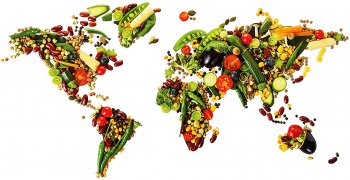
Humanity is in the midst of a global emergency. The policies that drive the world economy have magnified the gap between rich and poor, led to conflict over the planet’s natural resources, and resulted in an ecological crisis that threatens life on earth.
We urgently need to move beyond the restrictive political and economic ideologies of the past and embrace solutions that meet the common needs of people in all nations - which will be impossible to achieve without some degree of economic sharing both within and between countries. In an increasingly unequal and unsustainable world in which all governments need to drastically re-order their priorities, a call for economic sharing embodies the need for justice, human rights and sound environmental stewardship to guide policymaking at every level of society.
This report gives a concise introduction to the principle of sharing in relation to the interconnected global crises we face, and makes a simple case for how the world’s wealth, power and resources can be shared more equitably and sustainably.
Part 1 introduces the political economy of sharing, and highlights the many broad and diverse expressions of sharing throughout the world. As these examples demonstrate, sharing has long been central to human civilisation and integral to the healthy functioning of societies. But as systems of sharing are being increasingly undermined, it is critical that we support and scale up the process of sharing within nations and internationally.
Part 2 outlines how humanity’s continued failure to share is largely responsible for creating what can only be described as a global emergency. This includes the growing tragedy of poverty amidst plenty, the climate and ecological crisis in all its dimensions, and the intensifying conflict over the world’s finite natural resources. Altogether, this leaves the international community with one remaining option: to finally place sharing, cooperation and ecological preservation at the forefront of policymaking and global governance.
Part 3 proposes an alternative approach to managing the world’s resources based upon economic sharing and international cooperation. This process must begin with an unprecedented programme of humanitarian relief to prevent life-threatening deprivation and needless poverty-related deaths as a foremost priority, followed by a major restructuring of the global economy to address the structural causes of our present social, political, economic and environmental crises.
As the conclusion of this report makes clear, we cannot wait for governments to rethink the management of an economic system built upon massive inequality, unsustainable consumption and competition over scarce resources. Given the entrenched vested interests and structural barriers that obstruct progress, the hope for a better world rests with the participation of the global public in a call for reform that extends beyond national borders. Hence it is imperative that millions more people recognise what is at stake and take the lead as proponents for change – a solution to the world’s problems depends on our united demand for a just, sustainable and peaceful future.